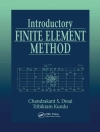- Provides a detailed overview of the economics of agriculture
- Considers the economic feasibility of agricultural robotics
- Discusses the economic consequences and environmental impact of nitrogen fertilisers
Inhoudsopgave
- Chapter 1 – Economics of agricultural robotics: James Lowenberg-Deboer, Harper Adams University, UK;
- 1 Introduction
- 2 History of adoption of agricultural robotics
- 3 Expected benefits of agricultural robotics
- 4 Potential agricultural robotics in low- and middle-income countries
- 5 Broader implications of agricultural robotics for the farm sector
- 6 Social Impact
- 7 Policy, regulatory and institutional issues
- 8 Conclusion
- 9 Where to look for further information?
- 10 Acknowledgements
- 11 References
- Chapter 2 – The economics of nitrogen in farming systems and beyond: David J. Pannell and Asjad Tariq Sheikh, University of Western Australia, Australia;
- 1 Introduction
- 2 Economics of nitrogen as an input to production
- 3 Nitrogen and economic risk
- 4 Economics of nitrogen fixation from legumes
- 5 Flat pay-off functions
- 6 Over-application of nitrogen fertilisers
- 7 Nitrogen pollution
- 8 Nitrogen research, development and extension
- 9 The market for nitrogen fertiliser
- 10 Conclusion
- 11 References
- Chapter 3 – Evaluating the economics of integrated weed management: Pieter de Wolf, Saskia Houben, William Bijker and Koen Klompe, Wageningen Plant Research, The Netherlands;
- 1 Introduction
- 2 Approaches to economic evaluation
- 3 The case study in IWMPRAISE
- 4 Comparing the economics of different integrated weed management strategies
- 5 Different approaches in assessing the economics of integrated weed management strategies
- 6 Comparing different approaches in the economic evaluation of integrated weed management strategies
- 7 Where to look for further information
- 8 References
- Chapter 4 – The economics of groundwater development and governance: T. Shah, International Water Management Institute (IWMI), India;
- 1 Introduction
- 2 Textbook economics of aquifer development
- 3 Alternative approaches to groundwater governance
- 4 The possibility of collective action
- 5 Conclusion
- 6 Future trends
- 7 References
Over de auteur
David Pannell is Professor of Agricultural and Resource Economics, University of Western Australia; Director, Co-Centre for Environmental Economics and Policy; ARC Federation Fellow (2007-2012); Distinguished Fellow and past president of the Australian Agricultural and Resource Economics Society; Fellow of the Academy of Social Sciences in Australia; and a Director of Natural Decisions Pty Ltd. His research includes the economics of land, water and nature conservation; environmental policy; farmer adoption of conservation practices; risk; and economics of farming systems. David has won awards for his research in the USA, Australia, Canada and the UK, including the 2009 Eureka Prize for Interdisciplinary Research.
Koop dit e-boek en ontvang er nog 1 GRATIS!
Taal Engels ● Formaat EPUB ● Pagina’s 94 ● ISBN 9781835452530 ● Uitgeverij Burleigh Dodds Science Publishing ● Stad Cambridge ● Land GB ● Gepubliceerd 2025 ● Downloadbare 24 maanden ● Valuta EUR ● ID 10100015 ● Kopieerbeveiliging Adobe DRM
Vereist een DRM-compatibele e-boeklezer












